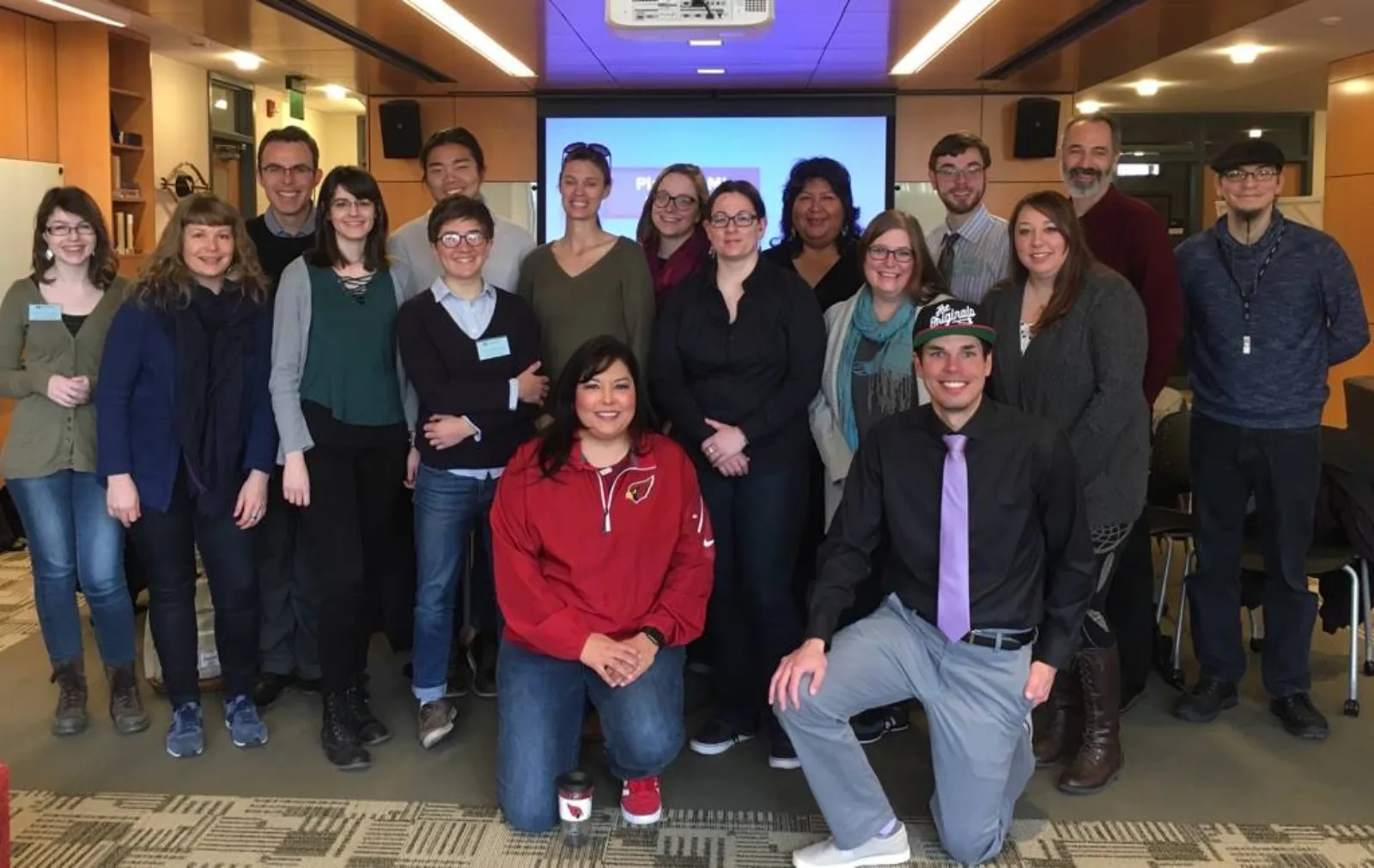This workshop will explore indigenous language and literacy resources in the collections of Amherst College. Traditionally the purview of historians, archives are now drawing researchers from a range of disciplines including literary scholars, linguists, art historians, along with tribal communities searching for language records as part of revitalization programs. Histories and archives have often served settler colonialism and participated in the erasure of Native voices, literacies, and anti-colonial resistance. How can scholars resist, rather than reproduce, the coloniality of such sites and practices? Can the archives be decolonized and if so, how?
Assistant professor of Anthropology and director of the Native American and Indigenous Language Lab at UIUC Jenny L. Davis will lead discussions about Native American language recovery and revitalization while Birgit Brander Rasmussen, author of the prize-winning study Queequeg's Coffin: Indigenous Literacies and Early American Literature (Duke UP, 2012), will guide explorations of indigenous literacy practices. Mike Kelly (Head of Archives & Special Collections) will show highlights from the Kim-Wait/Sovereignty, Citizenship, and the American Imagination, 1880–1930. Given the archival complicity with settler colonialism’s erasure of Native peoples, languages, literacies, and knowledges, what kind of recovery is possible? If materials are scattered in ways that are difficult to trace using standard search engines, how may scholars and community members recover fragments that current cataloguing practices render invisible? Eisenberg Native American Literature Collection including extremely rare publications by Samson Occom, William Apess, Gertrude Bonnin, Joy Harjo, Gerald Vizenor, and others. He will be joined by Kiara Vigil, Assistant professor of American Studies, and author of Indigenous Intellectuals:Sovereignty, Citizenship, and the American Imagination, 1880–1930. Given the archival complicity with settler colonialism’s erasure of Native peoples, languages, literacies, and knowledges, what kind of recovery is possible? If materials are scattered in ways that are difficult to trace using standard search engines, how may scholars and community members recover fragments that current cataloguing practices render invisible?
Workshop Participants:
Kaipo Matsumoto, Harvard University
Shelisa Klassen, University of Manitoba
Michael Albani, Michigan State University
Bonnie Etherington, Northwestern University
Isabel Lockhart Smith, Princeton University
Heather Caverhill, University of British Columbia
Renata Burchfield, University of Colorado - Boulder
Sarah Johnson, University of Illinois
John Little, University of Minnesota
Shawna Begay, University of Nevada, Las Vegas
Loyola Bird, University of New Mexico
Lindsay Marshall, University of Oklahoma
Jordan Craddick, University of Washington
Monea Warrington, University of Wisconsin
Anthony Trujillo, Yale University
